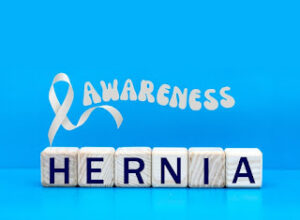Shedding Light on Hernia Awareness Month: Understanding Symptoms, Causes, and When to Seek Help
In the realm of health awareness, there are numerous conditions that warrant attention and understanding. One such condition is a hernia, which affects millions of individuals worldwide. As we delve into Hernia Awareness Month, let’s explore what a hernia is, when it occurs, and why it’s essential to recognize its symptoms and seek timely medical attention.

Hernia Awareness Month |
What is a Hernia?
A hernia occurs when an organ or fatty tissue squeezes through a weak spot or opening in the surrounding muscle or connective tissue. This protrusion often creates a noticeable bulge, which may cause discomfort or pain, particularly when coughing, lifting heavy objects, or straining during bowel movements.
When is Hernia Awareness Month?
Hernia Awareness Month is observed in June, serving as a dedicated period to raise awareness about this prevalent medical condition. During this time, healthcare professionals, advocacy groups, and individuals come together to educate communities about hernias, their symptoms, and the importance of early detection and treatment.
The Color for Hernia Awareness Month
Symbolized by the color white, Hernia Awareness Month aims to shine a spotlight on the importance of early detection and optimal care for individuals affected by hernias. The white ribbon serves as a visual reminder of the significance of spreading awareness and supporting those impacted by this condition.
Show your support for Hernia Awareness Month with our stylish white t-shirt.Hernia Awareness Month with our stylish white t-shirt. Featuring the symbolic white ribbon, this shirt promotes awareness and early detection of hernias. Perfect for spreading the message and supporting those affected by hernias. Wear it with pride and help raise awareness!
 |
| Hernia Awareness Month |
Hernia Symptoms and Sensations
Recognizing the symptoms of a hernia is crucial for early intervention and effective management. Common symptoms include:
- Visible Bulge: A noticeable lump or bulge, particularly in the abdomen or groin area.
- Discomfort or Pain: Mild to severe discomfort or pain, especially when lifting heavy objects, coughing, or straining.
- Pressure or Heaviness: A feeling of pressure or heaviness in the affected area.
- Burning Sensation: Some individuals may experience a burning sensation at the site of the hernia.
What Does a Hernia Feel Like?
Describing the sensation of a hernia can vary from person to person. For some, it may feel like a dull ache or pressure, while others may experience sharp pain or discomfort. The presence of a visible bulge, coupled with sensations of discomfort or pain, often prompts individuals to seek medical evaluation.
What Causes Hernia?
Several factors can contribute to the development of a hernia, including:
- Weak Muscles: Weakness in the abdominal or groin muscles, often due to aging, injury, or strenuous physical activity.
- Congenital Factors: Some individuals may have a predisposition to hernias due to inherited weakness in the abdominal wall.
- Lifestyle Choices: Factors such as obesity, smoking, and poor lifting techniques can increase the risk of developing a hernia.
- Chronic Coughing or Straining: Conditions such as chronic coughing, constipation, or frequent heavy lifting can strain the abdominal muscles and lead to hernias.
When to Worry About Hernia Pain?
While occasional discomfort or mild pain may not necessarily indicate a medical emergency, certain symptoms warrant prompt attention from a healthcare provider. Individuals should seek medical evaluation if they experience:
- Sudden and Severe Pain: Intense or persistent pain, especially if accompanied by nausea, vomiting, or the inability to pass gas or have a bowel movement.
- Changes in the Appearance of the Hernia: Any changes in the size, shape, or color of the hernia should be evaluated by a healthcare professional.
- Difficulty Reducing the Hernia: Inability to push the hernia back into place or if it becomes trapped (incarcerated) or strangulated (blood supply to the herniated tissue is compromised).
Conclusion
Hernia Awareness Month serves as a valuable opportunity to educate individuals about this common medical condition and emphasize the importance of early detection and optimal care. By understanding the symptoms, causes, and when to seek medical attention, we can empower individuals to take proactive steps in managing their health and well-being. Together, let’s raise awareness, support those affected by hernias, and promote a healthier future for all.
